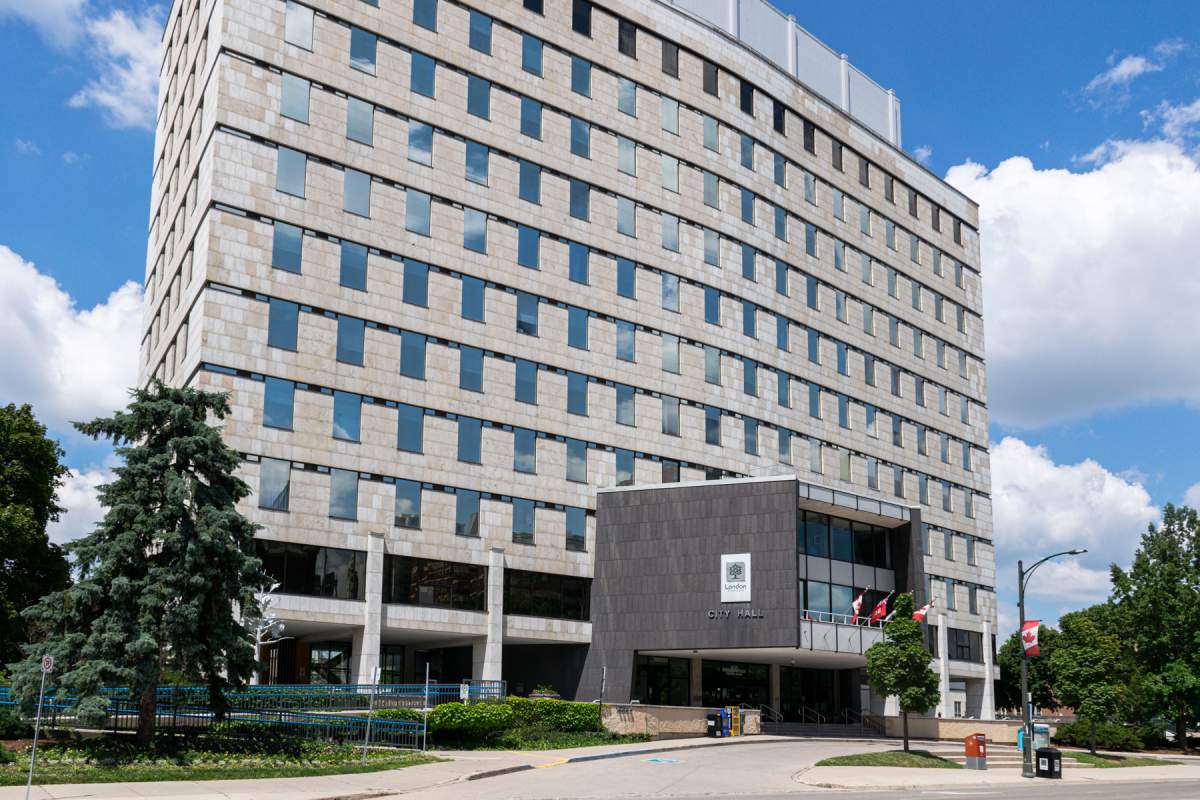The City of London will receive just over $40 million from upper levels of government, while St. Thomas will receive $2.3 million, as part of a multi-billion-dollar funding announcement made in late July.

At that time, Ontario confirmed municipalities will receive a total of up to $4 billion in funding to help cover the costs incurred due to the coronavirus pandemic — with up to half earmarked for public transit. The province said it is contributing $1.22 billion for municipalities, with Ottawa providing $777 million, while both levels of government would split up to $2 billion in transit funding equally.
The federal contribution is coming from the $7 billion Ottawa promised to the province as part of its pandemic relief package, according to a spokesman for Ontario’s finance minister.
“I gotta tell you, 40-and-a-half million dollars is some welcome news for us given the position we were tracking towards,” said London city councillor and budget chair Josh Morgan.
The city has been doing its part to cut costs, as Morgan noted, including implementing a hiring freeze, reducing service levels and delaying capital projects.
“Having this funding at this time is important because we had basically taken every action we could and were tracking towards significant service cuts or a tax increase, which is why we worked so hard, through the Federation of Canadian Municipalities and the Association of Municipalities of Ontario, and with our local MPs and MPPs, to ask higher levels of government to support us.
“So the one thing I do need to do today is express a very clear and sincere ‘thank you’ to those higher levels of government and our local MPs and MPPs.”
Municipalities in Ontario are not allowed to plan to run a deficit. As Morgan previously explained, municipalities can end the year in a deficit position but then they would have to “immediately take care of that with the next budget.”

Get daily National news
Additionally, municipalities have few ways to raise revenue — property taxes and user fees. As CUPE wrote in May 2019, “municipalities are responsible for construction, operations and maintenance of nearly 60 per cent of our nation’s public infrastructure” but only “collect about 12 cents of every tax dollar paid in Canada.”
“Obviously the impacts of COVID — as they continue to evolve and continue into the final quarter of this year and likely into next year, who knows how far — that will continue to have financial pressures on municipalities and so there will be continued discussions with higher levels of government about our ongoing needs,” Morgan said.
“Here at the City of London, we will have a much clearer picture of what that looks like in September. Our staff are going to bring forward an analysis of our current budget position projected through the end of the year as well as now include how this money will help offset that and then help us with what the outlook will look like in the months to come after this year.”
The details announced Wednesday are part of Phase 1 of funding, which will see Ontario’s 444 municipalities receive a total of $695 million in September, according to the provincial government. The funding is reported to be allocated “on a per household basis” and will be “shared 50/50 between upper- and lower-tier municipalities.”
The province says up to $695 million in additional funding “will be available through Phase 2 for municipalities that have COVID-related financial impacts that exceed the initial per household allocation provided under Phase 1,” though it is unclear when Phase 2 of funding distribution would occur.
The Doug Ford government says it is also providing over $660 million in Phase 1 of transit funding to the 110 municipalities with transit systems. Phase 2 will provide additional money based on expenses incurred.
“Ontario’s municipalities, including those in Elgin-Middlesex-London, have faced unprecedented pressures as a result of COVID-19,” said MPP Jeff Yurek in a release.
“I am proud that our government is providing them with the emergency support they need to not only maintain critical service delivery but also support the health and safety of their communities.”
Locally, funding distribution is as follows:
- Aylmer – $184,400
- Bayham – $164,100
- Central Elgin – $344,700
- Dutton Dunwich – $101,000
- Elgin County – $1,276,000
- London – $40,482,958 including $18,523,658 for transit operations
- Malahide Township – $195,100
- Middlesex County – $1,782,700
- Southwold Township – $107,000
- St. Thomas – $2,308,557 including $166,751 for transit operations
- Thames Centre – $315,200
- West Elgin – $196,547 including $16,747 for transit operations
According to the province, “Ontario is also providing municipal service managers and Indigenous housing partners an additional $212 million under the Social Services Relief Fund to help protect vulnerable people from COVID-19.”
The province says those funds can help protect homeless shelter staff and residents, expand rent support programming and create longer-term housing solutions. The additional money brings the funding for service managers and Indigenous program administrators to $510 million.

— with files from Paola Loriggio of The Canadian Press.













Comments
Want to discuss? Please read our Commenting Policy first.